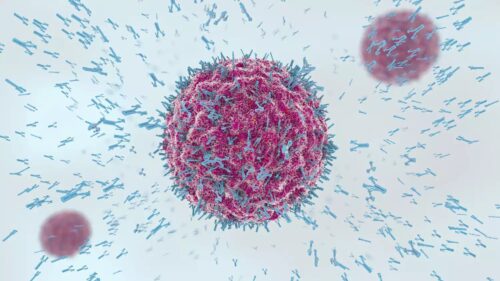Image Courtesy of ThoughtCo.
B-cells, a type of white blood cell, recognize and generate antibodies that help humans defend against all kinds of foreign invaders. Thanks to the B-cell receptor proteins (BCRs) present on their surfaces, B-cells can easily distinguish between pathogens—an ability called antigen specificity. BCRs are made up of sequences of amino acids which bind to specific structures on a pathogen. Scientists believe that by examining the information encoded within a BCR sequence, we can accurately determine the kinds of antibodies that might be produced by a B-cell.
Recently, Yale researchers developed several artificial intelligence models to predict the antigen specificity of B-cells based on the sequence of their specific BCR. These models work like ChatGPT; however, unlike ChatGPT, they are trained on vast amounts of protein sequences instead of natural language. Although the models tested each used very different techniques, surprisingly, all models made fairly accurate predictions. Interestingly, the models that performed the best were the ones trained specifically on BCRs. “[This study] produces a benchmark across models [because] not much evaluation [exists] to see which ones perform best in terms of prediction tasks,” Mamie Wang, the first author of the study, said.
In the future, artificial intelligence may play a crucial role in the development of antibody therapeutics. Pathogens often mutate quickly, meaning that researchers constantly need to design new drugs to prevent those pathogens from wreaking havoc. By leveraging the power of language models, the speed of antibody design may one day outpace the evolution of disease.

